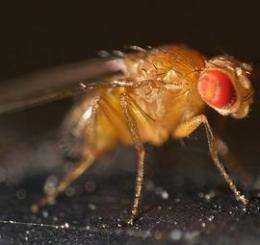Pesticide study shows that sexual conflict can maintain genetic variation

New research from the University of Exeter has shown that the sexually antagonistic gene for resistance to the pesticide DDT, which increases fitness in female flies but simultaneously decreases fitness in male flies, helps to maintain genetic variation. The findings contribute to the understanding of evolutionary dynamics and have important implications for pest management.
The researchers used a genetic model and multiple experimentally evolving populations of the fly Drosophila melanogaster to test whether sexual conflict can maintain genetic variation. Their findings show that sexually antagonistic selection is able to maintain genetic variation and also broadly explains the genetic patterns seen in nature.
Professor David Hosken from the Centre for Ecology and Conservation at the University of Exeter's Cornwall Campus in Penryn said: "Our results show the potential value for insect resistance systems to not only play a part in applied pest management but also shed light on fundamental evolutionary questions."
Sexual conflict occurs whenever males and females differ in their optimal values for shared traits. In humans, wider hips are favoured in females to accommodate child birth, but are less of a benefit in males because they lead to increased mobility costs. The way that genetic variation - essential for species adaptation - is maintained under such conditions has so far been unclear.
The results of this study provide an explanation for why, although the DDT resistant gene variant which was present before pesticide use, and is known to improve numbers of and survival of offspring, did not increase in frequency until widespread DDT use.
Although now banned for agricultural uses, DDT is still produced in relatively small quantities to control the populations of animals known to be disease vectors, for example in mosquito control to limit the spread of malaria.
More information: Sexual conflict maintains variation at an insecticide resistance locus by Wayne G. Rostant, Caroline Kay, Nina Wedell and David J. Hosken is published today in the journal BMC Biology. www.biomedcentral.com/1741-7007/13/34
Journal information: BMC Biology
Provided by University of Exeter




















